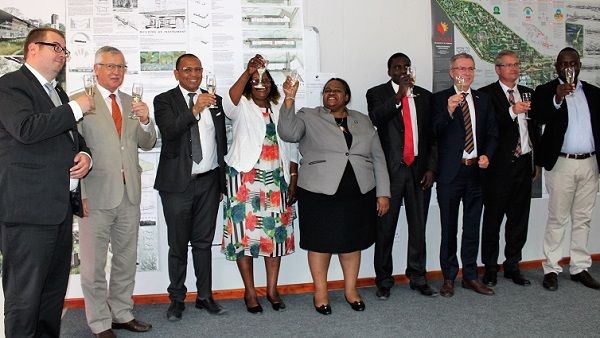
Wildlife department provides academic foundation for KAZA Conservation Area

Deon Pretorius Architects last week learned they submitted the winning entry for the design and construction of the new building for the Department of Wildlife Management and Eco-Tourism at the Katima Mulilo campus of the University of Namibia.
Their design is the best because it represents an excellent combination of an innovative concept to promote teaching and learning through infrastructure and a practical approach to economic and ecological aspects. The second prize went to Barnard Mutua Architects, also from Windhoek and the third prize to the Dennis Moss Partnership in Stellenbosch.
The construction of the nearly N$150 million facility is planned to start in the first half of 2018. From the start, a team of consultants has been supporting the university with the implementation of the project.
The award ceremony was officially opened by Prof. Kenneth Matengu and the prize was presented by the German Ambassador H.E. Christian Schlaga.
“The sustainable management of natural resources is one of the three focal areas of cooperation while vocational training and higher education is a crosscutting issue addressed in all focal areas. To ensure the sustainable development of the natural resources and the tourism sector, it is crucial to protect its unique biodiversity and fragile ecosystems” said the German Embassy motivating their involvement in the project.
The Deputy Minister of Economic Planning, Hon Lucia Iipumbu said “The purpose of building the Department of Wildlife and Conservation Management at the UNAM campus here in Zambezi Region is to make it a green campus that would establish environmentally sustainable practices in educational institutions. This will enable the trans-boundary conservation approach to promote migratory corridors for wildlife across international boundaries and to reduce human wildlife conflict. The project will serve as a gateway for higher education and research in neighbouring countries as the cooperation within the Kavango Zambezi Transfrontier Conservation Area is crucial.”













































